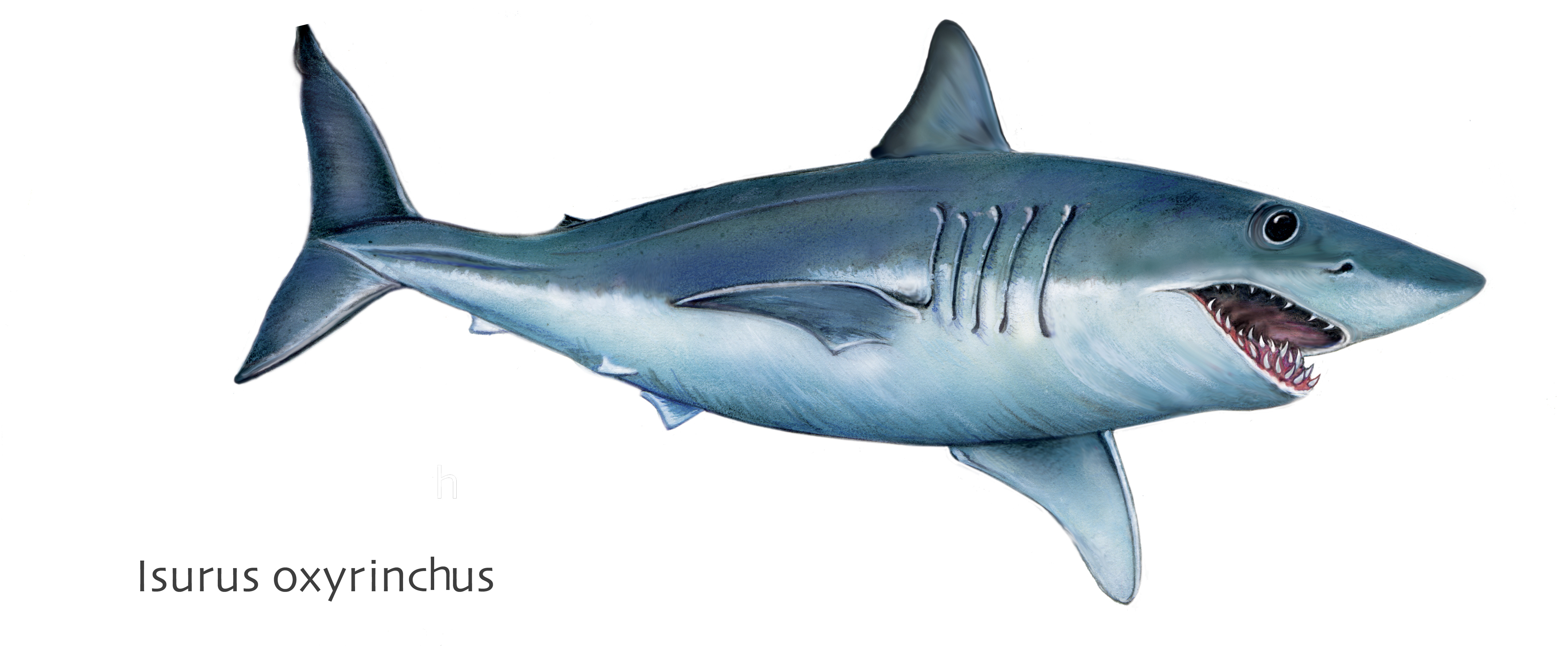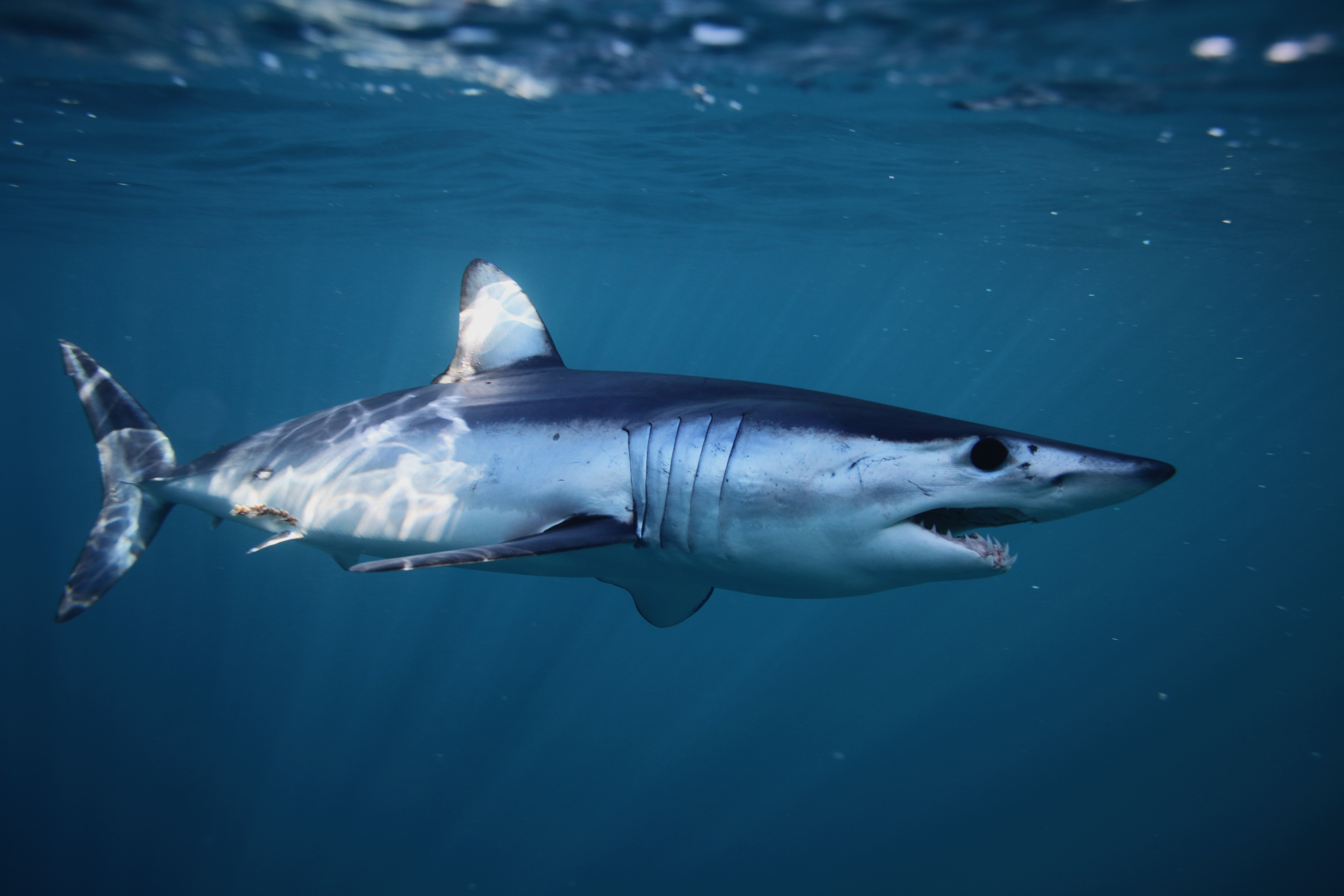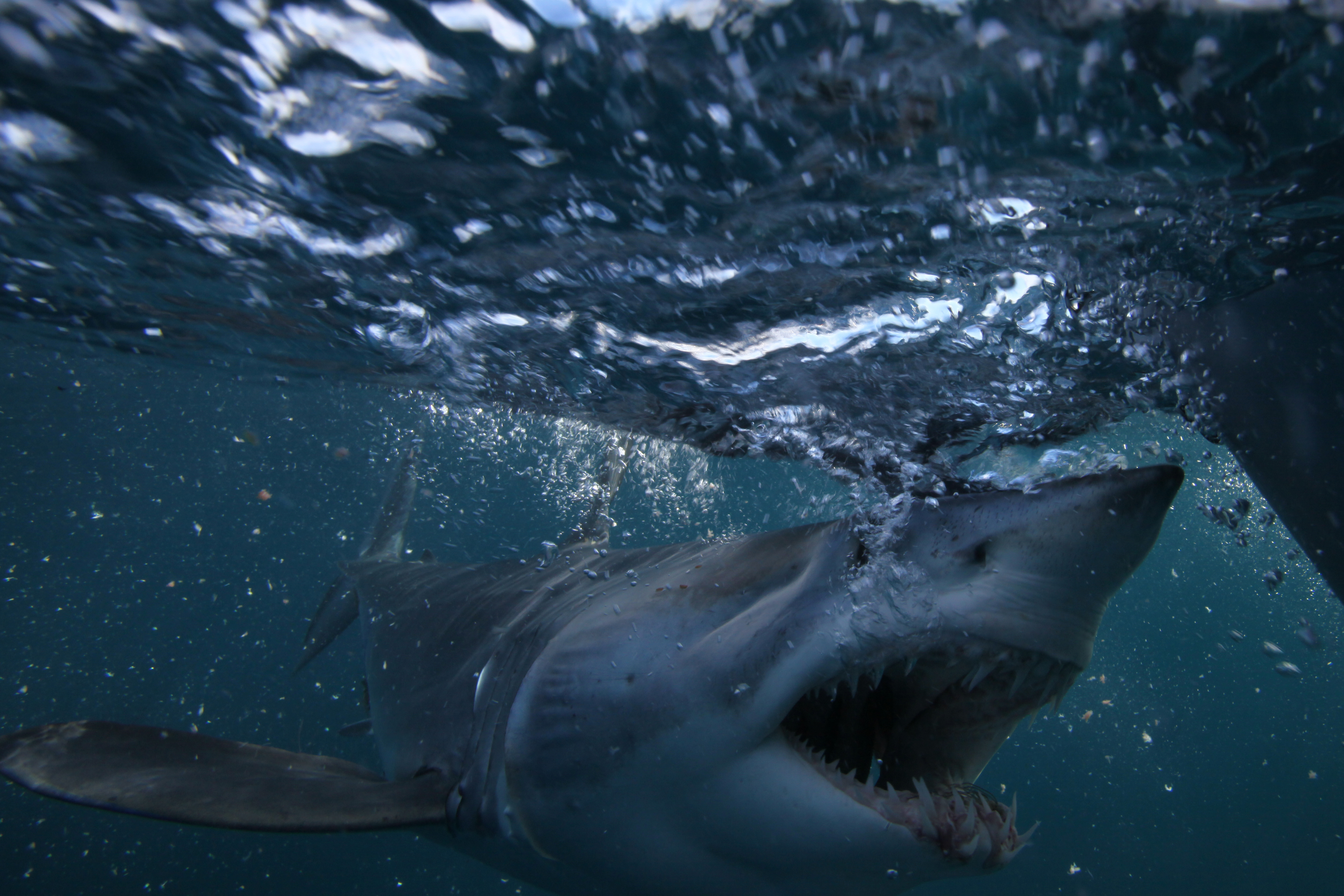#MakeTimeForMakos — Fastest Shark Alive Races Overfishing
The shortfin mako is a large mackerel shark currently listed as Threatened under the IUCN Red List. Shortfin makos are credited with being the fastest-swimming sharks alive, with speed bursts of nearly 70 km an hour! This charismatic marine top predator is a long distance traveler, journeying offshore areas, often at depths of up to 150m in search of its main prey — tuna and swordfish.

Illustration of a mako shark. © Annalisa Durante
In 2017, troubling news surfaced in relation to shortfin mako conservation in the North Atlantic Ocean. Science suggests that the swift-swimming shark is in dire need of a conservation push to bounce back from overfishing. The question is, whether or not international agreements on catch limits will be implemented and enforced in time.
Slow reproduction, highly sought after meat, popular sport fishing, and bycatch all hindering mako population regrowth
Like many species of sharks worldwide, the shortfin mako is experiencing overexploitation throughout much of its range. In particular, the North Atlantic Ocean has presented sizeable challenges for these animals. Currently, science suggests that overfishing in this region is occurring on an already overfished population. Couple this with the fact that shortfin makos reproduce slowly and reach sexual maturity at a late age (18 years) and the threat of fisheries collapse becomes clear.
Most species of sharks are not fished for their meat because they are considered too tough to eat. Unfortunately, this is not the case for mako sharks, driving demand in fisheries and landing them on the plates of consumers around the world. They’re also popular targets in many sport fisheries and are frequently caught accidentally by fishermen on the hunt for tuna or swordfish. With so many factors working against them, more responsible management is needed.
Researchers and conservationists agree — it’s time for catch limits to change so the population can begin rebuilding.

A shortfin mako shark cruises of South Africa's coast. Photo © Alessandro De Maddalena
ICCAT 2017 falls short of conservation expectations
This was the hope at the annual meeting of the International Commission for the Conservation of Atlantic Tunas (ICCAT) in November 2017.
ICCAT is an intergovernmental organization responsible for the management and conservation of tuna and tuna-like species (such as sharks) in the Atlantic Ocean. At the 2017 meeting, members failed to adopt catch limits recommended by researchers and conservationists to protect shortfin mako sharks from overfishing or strengthen the ban on shark finning in the region.
‘This has been a conservation problem at ICCAT for years, and now the species is in serious trouble’ says Sarah Fowler, Policy Advisor for Save Our Seas Foundation. ‘Unless proper management strategies for mako sharks in the North Atlantic can be agreed upon and enforced by members soon, this population will plummet further towards extinction.’

Photo © Alessandro De Maddalena
How can you help shortfin mako sharks?
The situation for shortfin mako sharks in the North Atlantic may seem bleak, but there is still hope. Now more than ever, scientists and conservationists around the world have the data and solutions possible to begin fixing these problems. Still, effective changes in international fisheries policies require public understanding and support from various nations — something you can drive forward. To help mako sharks, spread the word via social media using the hashtag #MakeTimeForMakos.
Additionally, you can follow SOSF collaborators like Project Aware, Shark Advocates and Shark Trust. These organisations work tirelessly to push for shark conservation changes year-round and often provide opportunities for members of the general public to add their voice to the discussion.
